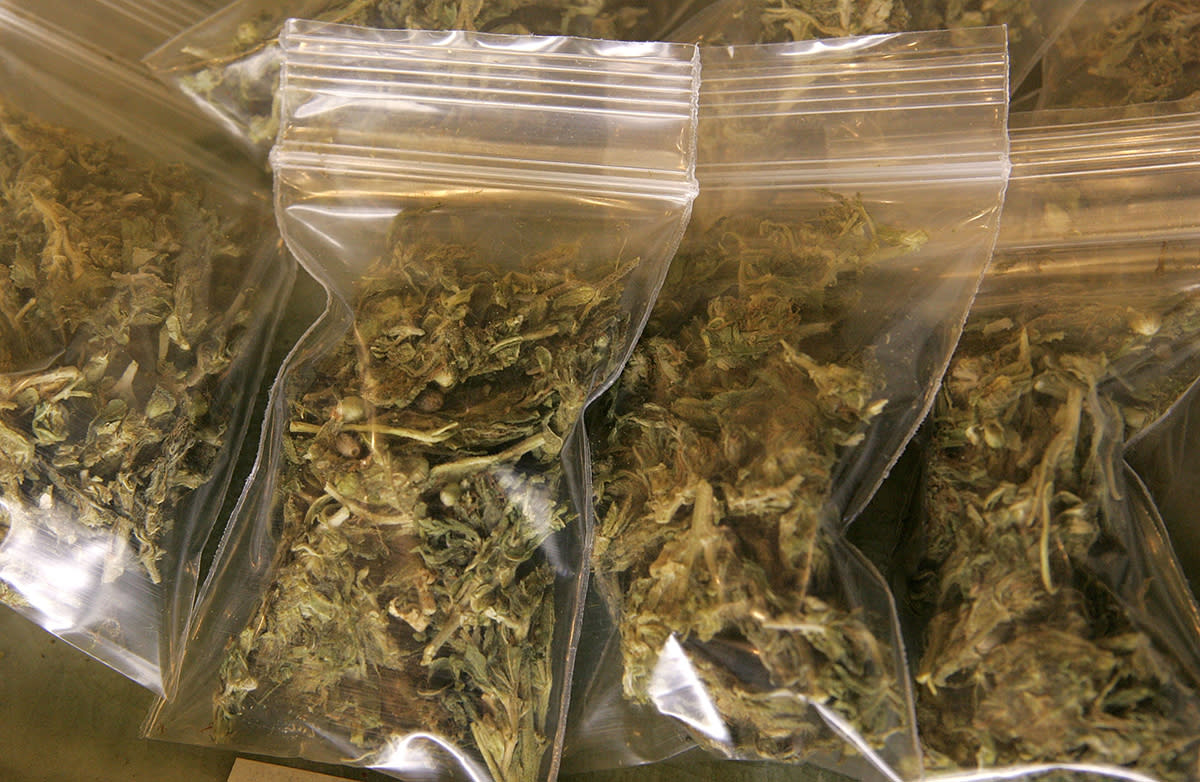San Francisco just decided to expunge from the record thousands of marijuana violations. Here’s why that’s a massive deal.

There are now nine states in the U.S. where marijuana is legal for recreational purposes — nine states where buying it is (or will soon be) almost as easy as procuring a latte. There are 20 more states where the drug is legal for medical purposes, and can be legally prescribed for migraines, anxiety, insomnia, and PTSD.
With all that in mind, it seems safe to say that marijuana, which was once illegal nationwide, has gotten a face-lift.
It was only a matter of time before one question on many activists’ minds was brought to the table: What about the many people whose lives were upended by prison sentences during the years when marijuana was nationally criminalized?
This week, for the first time since legalization began, we have an answer — or at least, one answer. It came from San Francisco, in the form of a statement from the city’s district attorney, George Gascón. “The San Francisco District Attorney’s Office will be reviewing, recalling and resentencing up to 4,940 felony marijuana convictions and dismissing and sealing 3,038 misdemeanors which were sentenced prior to the initiative’s passage,” the statement reads. “This will not require any action be taken by those who are eligible pursuant to Proposition 64.”
While the passage of Proposition 64, which legalized marijuana in the state, allowed for petitions to clear marijuana violations, the process for doing so appeared to be arduous and costly. Gascón, breaking new ground, is bypassing the system outlined in the law, essentially saying: Don’t come to us, we’ll come to you.
The news is monumental for the United States as a whole, with the potential to cause a domino effect nationwide and persuade the states and cities already grappling with the issue to follow San Francisco’s lead. Meanwhile, lost in the discussion of what this means for the country, and for the legalization debate, is what this means for communities of color.
It is well established that people of color, specifically African Americans, have borne the brunt of the war on drugs. A 2009 report found that African Americans were arrested for drugs somewhere between 2.8 and 5.5 times more often than white adults in every year from 1980 through 2007. Of the 25.4 million adult drug arrestees during that period, one in three was African American.
A 2013 report from the American Civil Liberties Union titled “The War on Marijuana in Black and White,” found specific disparities in marijuana arrests. Although they use the drug in roughly equal numbers, African-Americans are 3.73 times more likely to be arrested for possession than white Americans.
The result, which Gascón and his city have the power to overturn, can be life-altering. Marijuana violations — even simple possession — can make it more difficult to get housing, jobs, and an education. A drug violation can make you ineligible for any government assistance — including food stamps, public housing, or Medicaid. It can be reason to have your children taken away by social services or disqualify you from receiving college loans.
In short, even a possession charge can make surviving in the United States as a normal citizen near impossible. San Francisco’s decision to wipe the records of people in its city with this type of violation could give thousands a new lease on life — allowing them access to jobs, education, and a quality of life that they previously couldn’t enjoy. And that is exactly the reason the city chose to do it.
“San Francisco is once again taking the lead to undo the damage that this country’s disastrous, failed drug war has had on our nation and on communities of color in particular,” Gascón said in a statement, before pushing the ball forward. “This isn’t just an urgent issue of social justice here in California — it’s a model for the rest of the nation.”
The decision is significant for drug policy in general, and, on the first day of Black History Month, a win for communities of color.
Read more from Yahoo Lifestyle:
Parents are letting kids dye their hair younger and younger. Is this a good thing?
Time’s Up supporter Nina Dobrev called out for fangirling over Johnny Depp
Follow us on Instagram, Facebook, and Twitter for nonstop inspiration delivered fresh to your feed, every day.
